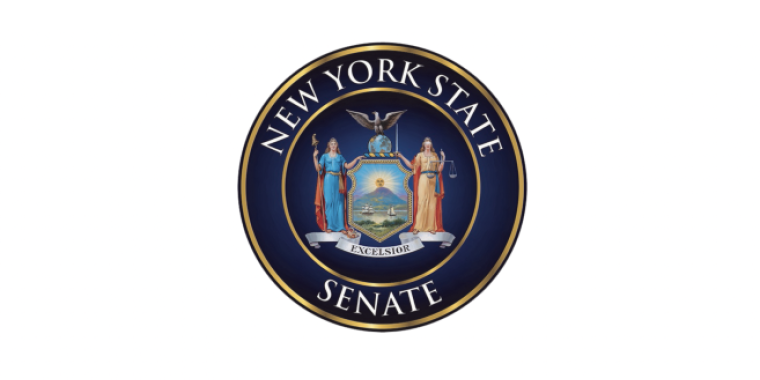
Ethics Reform Package Passes Senate
Liz Krueger
March 6, 2007
Included are Many Reform Bills that Krueger has Championed; Senator Brings Attention to Next Legislative Efforts to Ensure Highest Ethical Standard in Albany
Albany—State Senator Liz Krueger is pleased to announce that the Senate today passed the agreed upon ethics reform package that will now go to the Governor to be signed into law. However, Krueger indicates that today's vote is just one step in a very long process to comprehensively reform state government and she continues to advocate for the passage of a series of other bills that would strengthen the ethical standards by which Albany functions.
Highlights of today's package include:
Setting a higher standard for state public officials by prohibiting non-legislative employees from using their authority or influence to compel or induce any other employee to make political contributions, as well as nepotism, and taxpayer-financed advertisements, among other measures;
Increasing penalties for violation of state Public Officers Law and the state Lobbying Law, under the new ethical standards;
Establishing an independent public integrity commission;
Reorganizing the Legislative Ethics Committee.
Much of the package was developed from individual bills sponsored by Krueger in the Senate, including closure of the "revolving door" lobbying loophole, a ban on legislators accepting honoraria, as well as a gift ban for legislators and their staff.
"Ethics reform is key to an open, transparent, and accountable State government," Krueger said. "It is very important that voters have faith in the system, and trust that we will hold ourselves to the highest standard. In a perfect world, we would not need to spend time enacting laws to preserve the integrity of our system. But we do not live in a perfect world."
In 2006 Krueger proposed S6467 that would have closed the "revolving door" lobbying loophole that allows legislative staffers to retire and immediately become powerful paid lobbyists. The current law states that legislators must wait two years before lobbying the Legislature, but until now their former staff members have been allowed to roam the Capitol halls, using connections made during time as legislative employees, to advance their new employer's agenda.
"People were able to leave the Capitol as a legislative staffer one day and return the next as a lobbyist," Krueger explained. "Some companies certainly exploited the personal relationships that former staffers developed through day to day interaction for their own advantage."
In 2006 Krueger proposed S6704 that would ban paid honoraria that State employees and legislators may currently accept.
Senator Krueger also proposed a Senate rules change in both 2005 and 2007, that would have banned legislators from receiving gifts from lobbyists. At the time, Majority Leader Joe Bruno stated his support for such a ban, yet refused to allow the proposal to advance in the Senate Rules Committee.
"I'm glad that so many members in both houses, and both parties have come around to the reformist point of view. However, the gift ban is representative of why reform cannot succeed if done in bits and pieces," Krueger said. "For instance, New York's laws defining how legislators may spend campaign monies are among the most lax in the nation. Therefore, a tit for tat arrangement circumvents the gift ban—I'll buy dinner, you donate to my campaign fund."
For her part, Krueger sponsors more than two dozen reform proposals that remain stalled in the Republican-controlled Senate.
She will continue to fight for all her reform legislation. One significant piece of legislation that Krueger carries, which was not included in this package, would bring clarity to how political candidates can spend campaign monies prior to and while in elected office.
"We have laws regulating how political candidates can raise campaign money, it is only common sense to have equal clarity for how that money can be spent," Krueger said. "The purpose of campaign funds is clear—to help those running for public office to get elected, and to assist with legitimate expenses related to official duties incurred when elected. Campaign funds should not be used for any other purpose."
A second bill would provide for the elimination of pensions for those who have been convicted of a felony related to corrupt abuse of their position as an elected official.
"The absence of these two important and timely proposals underscores that we have only begun to enact reform legislation. It took a long time for our government to get as low as it has been—it is going to take time, and a lot of hard work to get us back up where we belong," Krueger concluded.
-30-



